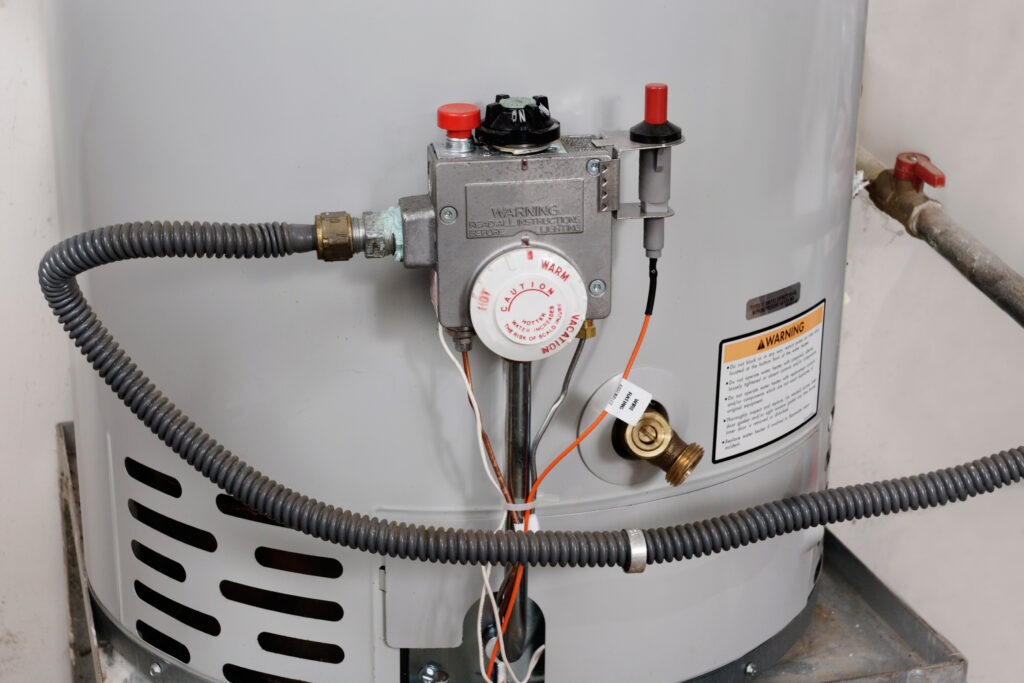As a homeowner in the Twin Cities, keeping your home comfortable and efficient is a top priority. One key part of that comfort? Reliable hot water. But have you ever stopped to think about how your water heater works or which type best fits your home’s needs?
At Northern Benjamin Franklin Plumbing, we understand the importance of knowing your water heater inside and out. Whether you’re in Minneapolis, Saint Paul, or the surrounding suburbs, this guide will help you understand the different types of water heaters, how they operate, and what might be the best choice for your home.
Why Understanding Your Water Heater Matters
Water heaters are often out of sight but vital to your daily life, from morning showers to washing dishes. Knowing how your system works can help you spot issues early, improve efficiency, and save money on your energy bills. Plus, selecting the right water heater for your home in the variable Twin Cities climate can make a big difference in comfort and costs.
Types of Water Heaters: What Twin Cities Homeowners Should Know
1. Conventional Storage Water Heaters
The conventional storage water heater is the most common type found in homes throughout the Twin Cities. It features a large tank that stores and heats water continuously, so you always have hot water ready.
Pros:
- Reliable, consistent hot water supply
- Lower upfront cost
- Easy to install and maintain
Cons:
- Limited tank capacity (you can run out of hot water during heavy use)
- Energy loss from maintaining the water temperature all day (standby heat loss)
- Requires regular maintenance to prevent sediment buildup, especially important in areas with hard water, like much of the Twin Cities region.
2. Tankless Water Heaters
Tankless water heaters, also known as on-demand water heaters, heat water only when you need it. No tank required. This means endless hot water and less wasted energy.
Pros:
- Energy-efficient: No standby heat loss
- Compact size frees up space in your home
- Longer lifespan than conventional heaters
Cons:
- Higher upfront cost
- May need upgrades to your home’s gas or electrical system
- Can struggle to supply multiple outlets simultaneously in larger homes without a properly sized unit
3. Heat Pump Water Heaters
Heat pump water heaters use electricity to move heat from the air to the water, rather than generating heat directly. This makes them an energy-saving option for Twin Cities homeowners who want to reduce their environmental footprint.
Pros:
- Uses up to 60% less electricity than traditional electric water heaters
- Can help lower your monthly energy bills
- Environmentally friendly
Cons:
- Best suited for warm or moderate climates, so proper installation and insulation are key in the Twin Cities’ colder winters
- Usually larger and may require more space for installation
4. Solar Water Heaters
Using the power of the sun, solar water heaters collect solar energy to heat your water. This eco-friendly system reduces reliance on traditional fuels.
Pros:
- Significant energy savings in the long term
- Reduces your carbon footprint
- Eligible for some tax incentives or rebates
Cons:
- Higher initial cost and installation complexity
- Efficiency depends on the amount of sunlight, which can be limited during Minnesota’s winter months
- Typically paired with a backup system for cloudy days
5. Tankless Coil Water Heaters
Tankless coil water heaters work by using your home’s furnace or boiler to heat water on demand. This is common in homes with existing hydronic heating systems.
Pros:
- No need for a separate water heater
- Efficient if your furnace runs regularly
Cons:
- Not ideal for warmer months when the furnace isn’t in use
- Limited hot water supply if heating system is off
- Less common in modern Twin Cities homes
How Do Water Heaters Work?
Though the types vary, most water heaters have key components like heating elements or burners, thermostats to regulate temperature, valves, and pipes that deliver hot water to your taps.
- In storage tank heaters, water is heated and stored in a large, insulated tank. The thermostat maintains the temperature, reheating water as it cools.
- In tankless systems, cold water travels through a heating element on demand, so there’s no stored hot water.
- Heat pump heaters pull heat from the surrounding air to warm the water, making them highly efficient.
- Solar heaters use collectors to absorb sunlight, transferring that heat to the water.
Understanding these basics helps you troubleshoot issues or know what questions to ask your plumber.
Choosing the Right Water Heater for Your Twin Cities Home
When choosing a water heater, consider:
- Your household size: Larger families may need bigger tanks or high-capacity tankless units.
- Energy efficiency: Look for Energy Star-rated models to save on utility bills.
- Space: Smaller homes or condos may benefit from compact tankless heaters.
- Climate: Minnesota’s cold winters mean heat pump and solar water heaters might need additional considerations for peak efficiency.
- Budget: Balance upfront costs with long-term energy savings.
Why Trust Northern Benjamin Franklin Plumbing in the Twin Cities?
At Northern Benjamin Franklin Plumbing, we specialize in helping Twin Cities homeowners select, install, and maintain the best water heater for their unique needs. Our licensed plumbers bring years of experience working with all types of water heaters in Minneapolis, St. Paul, and nearby communities.
We offer:
- Expert advice on energy-efficient models
- Professional installation with local code compliance
- Reliable repair and maintenance services
- Fast, friendly service to keep your water heater running smoothly
Keep Your Hot Water Flowing This Summer
Don’t wait for a cold shower to remind you about your water heater! June is a great month to schedule maintenance or upgrade your system before summer guests arrive. Contact Northern Benjamin Franklin Plumbing today to learn more about water heaters and get a free consultation for your Twin Cities home.

